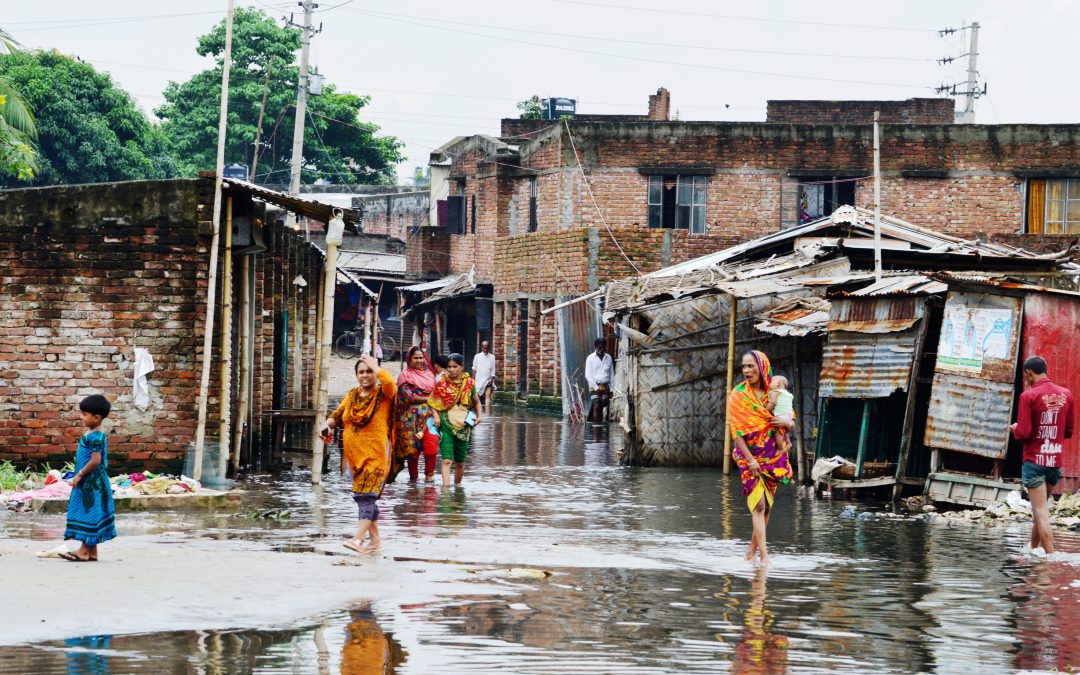
How can we amplify the leadership of southern climate scientists?
By Professor David Hulme, Executive Director of the Global Development Institute
I recently had the privilege of delivering a lecture at the IUB University and ICCCAD in Dhaka, Bangladesh. Much of the presentation was based on the recent book Bangladesh Confronts Climate Change by Roy, Hanlon and Hulme.
The lecture, and discussions over dinner with GDI alumni afterwards, felt a lot like ‘bringing coals to Newcastle’ as the book lauds the leadership that Bangladeshi scientists have provided to knowledge production and in taking their evidence to policy with Ainun Nishat, Saleemul Huq and other scientists attending. read more…
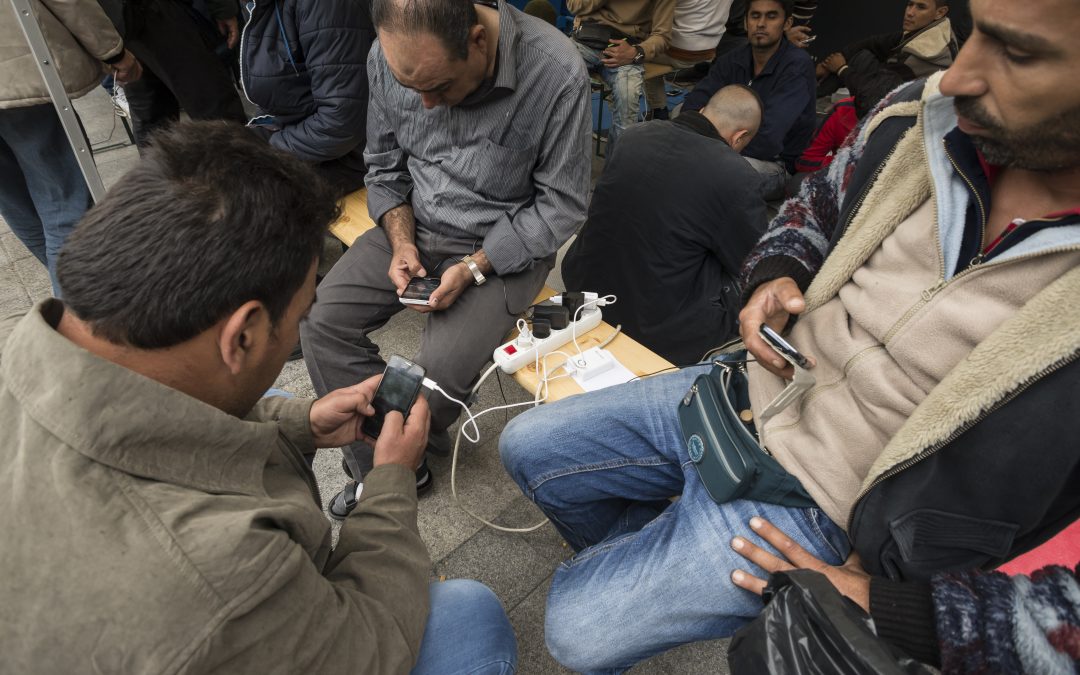
Uma Kothari: The power of a warm welcome: Forging a humanitarian response to refugees amid negative media imagery
Professor Uma Kothari, from the Global Development Institute, recently appeared on The University of Melborne’s online, audio talk show of research, opinion and analysis, Up Close. She discussed how media representations of asylum seekers influence us in how we attend and respond to the plight of individuals and groups fleeing their countries in search of safety. You can listen to the discussion in full below. read more…
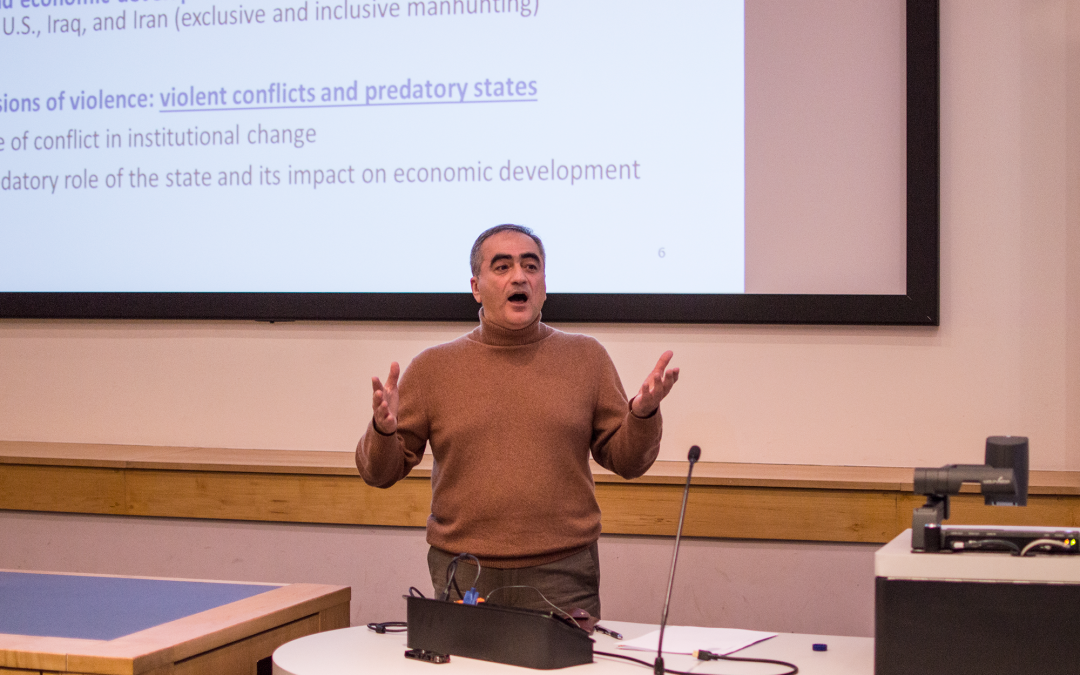
GDI Lecture Series: Predatory states and Economic development with Professor Mehrdad Vahabi
On Wednesday, 22 February, Professor Mehrdad Vahabi gave a lecture entitled ‘Predatory states and Economic development ’. You can listen to the lecture in full or watch the live stream below
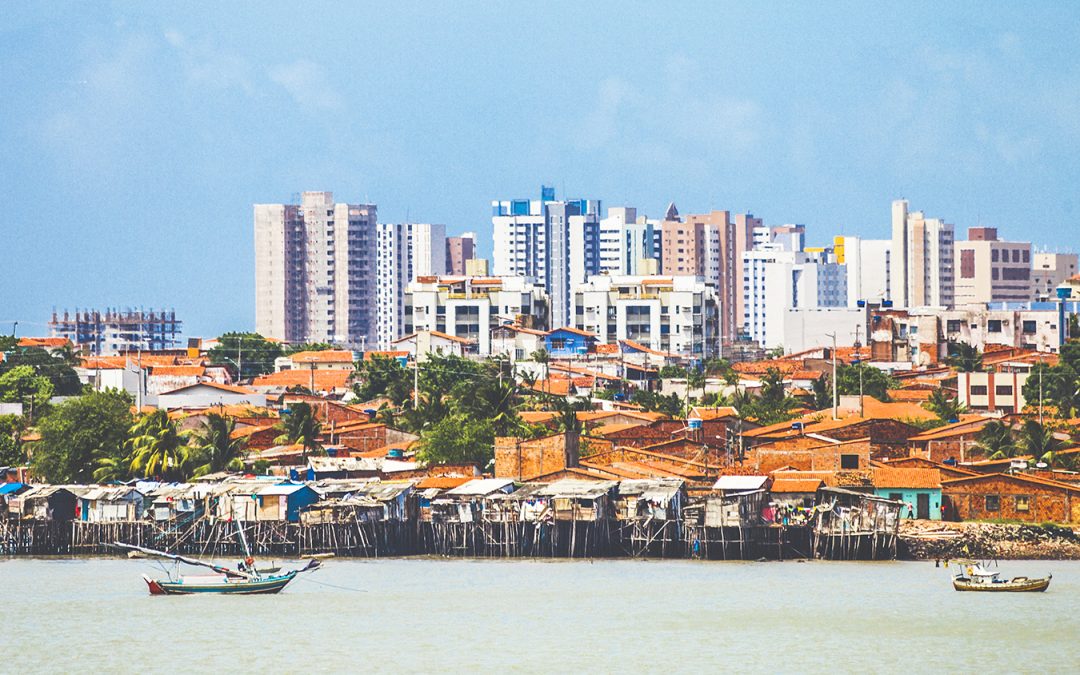
Divergence, big time to converging divergence: From international to global development?
In a new paper, published in the GDI Working Paper series, Rory Horner and David Hulme argue that the macro-scale map of development has shifted from “divergence, big time” to “converging divergence”, which consequently requires a shift from thinking of international development to global development.
The contemporary global map of development appears increasingly incompatible with any notion of a clear spatial demarcation between First and Third Worlds, “developed” and “developing”, or rich and poor, countries. The Sustainable Development Goals (SDGs), agreed in 2015, have a global focus that represents a universalisation of the challenge of development, a clear departure from the Millennium Development Goals’ (MDGs) almost exclusive focus on developing countries. The World Bank declared in April 2016 that it will no longer distinguish between developed and developing countries in its annual World Development Indicators. Although increasingly widespread recognition exists that the distinction between “developed” and “developing” countries is no longer tenable, enormous inequality and unevenness persists, and to some extent is even augmented, under a new spatial configuration of development. What then is the new “map” of development?
The “old” focus of international development was based on addressing what Lant Pritchett referred to as “divergence, big time” – the major departure in terms of economic development between developed and developing countries across the 19th and 20th centuries. “Poor people” were assumed to be synchronous with “poor places”. Various critical scholars questioned this binary, yet it remained dominant. The developed/developing country divide persisted through the second half of the 20th century to such an extent that the MDGS, the major development framing exercise of the late 20th century, were almost completely set within this type of macro-geographical categorisation: they were a rich world product which set targets for poor countries. read more…
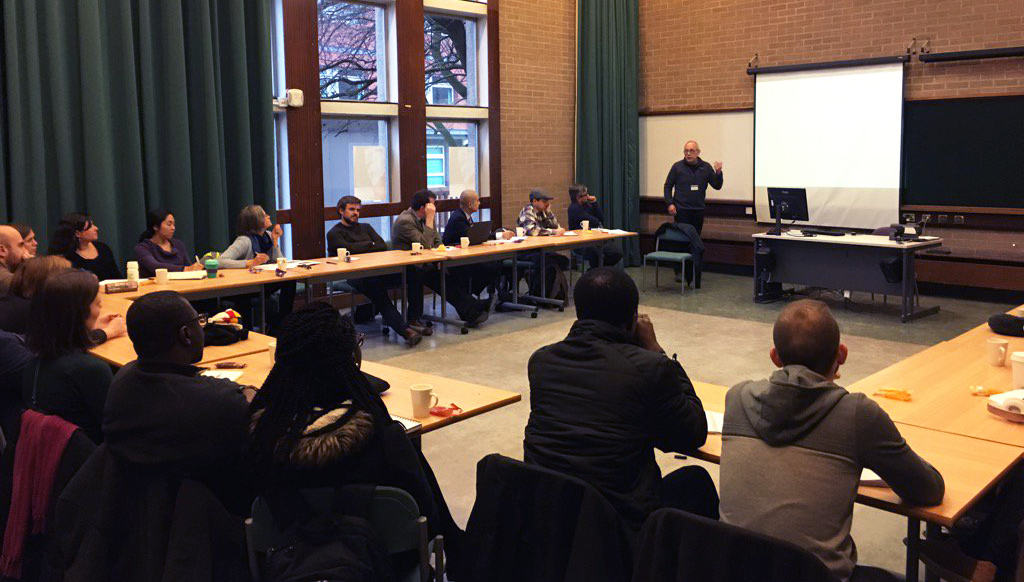
Inequality: policy bandwagon or a welcome shift?
The Global Development Institute recently held a workshop examining global inequalities, which brought together four of the Institute’s leading academics to grapple with various aspects of the ‘issue of the moment’. Two central questions were up for discussion:
- Why is inequality important as a conceptual and normative framework?
- Is the current interest in inequality in development a policy bandwagon or a welcome shift?
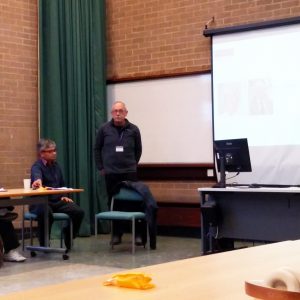 Prof Armando Barrientos began by remembering Sir Tony Atkinson and Derek Parfit, dearly missed colleagues who passed away in January, and both of whom contributed enormously to the academic landscape on inequality. Prof Barrientos noted that inequality is actually declining in low and middle income countries – and there is a need to look more closely at why that may be. He also pointed out that there is a tendency to assume that whoever demands inequality is in fact egalitarian. Prioritarianism may be the smarter way to go: the worse off people are, the more benefits they should receive. Yet, how those benefits might be delivered is unclear: proponents of global inequality reduction aren’t entirely sure how to achieve it. The best way we currently have through policy is through fiscal policy, specifically transfer systems. Nordic countries excel at this thanks to their progressive systems of transfer and taxation, but these (and personal income taxes in particular) do not exist in developing countries. Low and middle income countries, such as those in Latin America, that have managed to reduce inequality have not done so by altering the taxation system, but by reforming the expenditure system. So one solution may be to say: let’s not bother so much with how we collect taxes, and instead concern ourselves with how we spend it, and let’s spend it very progressively. read more…
Prof Armando Barrientos began by remembering Sir Tony Atkinson and Derek Parfit, dearly missed colleagues who passed away in January, and both of whom contributed enormously to the academic landscape on inequality. Prof Barrientos noted that inequality is actually declining in low and middle income countries – and there is a need to look more closely at why that may be. He also pointed out that there is a tendency to assume that whoever demands inequality is in fact egalitarian. Prioritarianism may be the smarter way to go: the worse off people are, the more benefits they should receive. Yet, how those benefits might be delivered is unclear: proponents of global inequality reduction aren’t entirely sure how to achieve it. The best way we currently have through policy is through fiscal policy, specifically transfer systems. Nordic countries excel at this thanks to their progressive systems of transfer and taxation, but these (and personal income taxes in particular) do not exist in developing countries. Low and middle income countries, such as those in Latin America, that have managed to reduce inequality have not done so by altering the taxation system, but by reforming the expenditure system. So one solution may be to say: let’s not bother so much with how we collect taxes, and instead concern ourselves with how we spend it, and let’s spend it very progressively. read more…
The first year of the Global Development Institute

GDI Lecture Series: Development NGOs’ dependence on home government funding with Professor Lauchlan T. Munro
On Wednesday, 16 February, Professor Lauchlan T. Munro gave a lecture entitled ‘Too close for comfort, relatively speaking? Development NGOs’ dependence on home government funding in comparative perspective’ . You can listen to the lecture in full or watch the live stream below read more…

Climate change research based on Dhaka slum showcased at Rich Mix London
Dhaka is on the front lines of climate change, but what does that mean to the people living in its slums? Research into urban climate change resilience, led Dr Joanne Jordan to team up with the University of Dhaka to produce a Pot Gan, a form of interactive indigenous performance theatre, to encourage slum dwellers, researchers, practitioners and policy makers to reflect on the day to day realities of living with climate change in low-income settlements in Dhaka.
Dr. Joanne Jordan’s The Lived Experience of Climate Change project hit the road again recently to bring the stories from Dhaka slum dwellers to a standing room only crowd of 200 people at Rich Mix in east London.
True to the premise of the Pot Gan performances in Dhaka last year, the evening took on an interactive theme, with audience members actively engaging with the personal experiences of slum dwellers affected by climate change. read more…

GDI Lecture Series: Designing Interventions in Developing Water-Energy-Food Systems with Julien Harou
On Wednesday, 8 February, Professor Julien Harou, The University of Manchester gave a lecture entitled ‘Designing Interventions in Developing Water-Energy-Food Systems’. You can listen to the lecture in full or watch the live stream below read more…

Basic income beyond borders – a new mechanism for economic justice?
There’s been lots of discussion recently on the feasibility of introducing Universal Basic Incomes, so we were intrigued to hear that Laura Bannister and Sarah Methven, both Manchester alumni were running a conference to around the idea of doing this on a global, rather than national basis. Here’s their report back from the event last weekend:
Early afternoon last Saturday, the Deputy Mayor of Salford welcomed 130 people to the city’s oldest church for the sold-out first World Basic Income Conference.
The church sits among streets where centuries of boots have marched for workers’ rights, including the infamous ‘Battle of Bexley Square’, which inspired the best-selling novel and play Love on the Dole. This time people had gathered to discuss one of the world’s newest social justice demands. The conference was the first ever to examine proposals for a worldwide basic income, an idea which aims to fight extreme poverty and begin turning the tide on global inequality by directly redistributing money, proposed to begin at $10 per month for every adult and child worldwide. read more…
